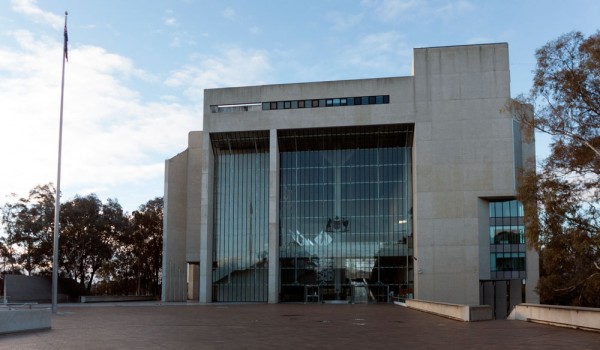
The High Court has dismissed Michaela Banerji’s appeal against being dismissed for tweeting anonymous political criticism. File photo.
In a finding with substantial implications for public servants everywhere, Canberra woman Michaela Banerji has lost her appeal against dismissal for anonymously tweeting critical opinions about immigration and border policies.
She had been sacked from her job with the Department of Immigration and Citizenship for breaching the public service code of conduct, requiring public servants to be apolitical at all times.
The long running legal saga began in the Federal Court in 2013, when Banerji’s application for an injunction to stop her termination was rejected by judge Warren Neville who said there was no “unbridled right” to free speech.
After her dismissal, Banerji then claimed workers compensation and was successful at the Administrative Appeals Tribunal. AAT deputy president (and former ACT Senator) Gary Humphries and tribunal member Bernard Hughson concluded that “a comment made anonymously cannot rationally be used to draw conclusions about the professionalism or impartiality of the public service”.
The AAT went further, drawing parallels between George Orwell and his concerns around thought crime and the idea of policing anonymous APS employees’ social media.
But an appeal from Comcare succeeded today, when the High Court unanimously upheld the decision to sack Banerji for the tweets from her @LaLegale account. It’s being seen as a landmark test case since the High Court did not use the constitutionally implied freedom of speech to find that the sacking was unjustified.
Chief justice, Susan Kiefel, and Justices Virginia Bell, Patrick Keane and Geoffrey Nettle found that anyone who posts on social media should assume their identity and public employment could potentially be revealed, creating an “obvious” risk that even anonymous social media could damage the public service and therefore contravene code of conduct.
Speaking before the finding, ANU Law visiting fellow Kieran Pender said the Banerji case was “a really tricky issue that ultimately comes down to the balance between free speech and a legitimate government interest in an impartial and effective administration.
“There are strong reasons why the government doesn’t want public servants expressing their political opinions all the time. And that’s been long accepted by the courts…But public servants can’t be silent members of society. They are ordinary citizens too. They deserve to be involved in debate, and often they are best placed to comment and contribute to democratic discourse.”
Mr Pender said the issue required a clear decision from the High Court because of its complexity.
“This isn’t black and white,” he said. “It’s a question of where you draw the line between two very compelling policy priorities. Until we have the High Court clarity, the line is blurry and that encourages the government to overreach.”
Today, separate judgements from Justices Stephen Gageler and James Edelman noted the substantial burden the public sector gag imposes but agreed it was “reasonably necessary and adequately balanced”.
The APS Commission provides public servants with detailed social media guidelines, but commentators say the case reaffirms that there are legally binding regulations which ultimately supersede these.
The Commission has warned that it’s relatively easy for an experienced user to identify who someone is and where they work, and that Departments are often very willing to make that effort to identify internal critics.
The case comes as Canberra lawyer Bernard Collaery faces the ACT Supreme Court on charges of conspiracy for the advice he provided to Witness K in the Timor L’Este spying case, and his decision to speak to the media about concerns that Australia had acted unethically in negotiations over Timor Gap gas fields.
Original Article published by Genevieve Jacobs on The RiotACT.







